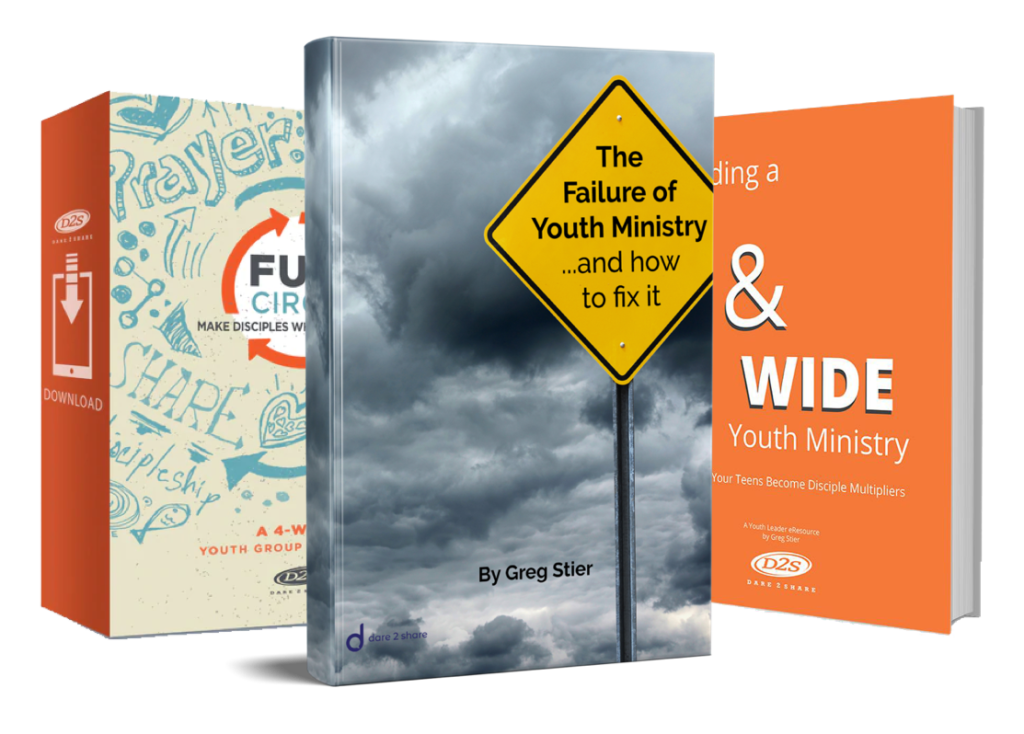Do you own a youth ministry calendar—or does your youth ministry calendar own you?
In the past decade of youth ministry, I’ve seen so many pastors burn out, miss opportunities, and get involved with the wrong events and activities, simply because they didn’t calendar their youth ministry with a Gospel Advancing purpose. I remember sitting down with a new youth pastor who was in only his third week in ministry. He was overwhelmed looking at his blank calendar and the stack of flyers promoting conferences, camps, and training seminars.
All too often, people say yes to an event without thinking of the bigger picture. To be more strategic, keep the following three words in mind as you plan out your events.
Try This! ❯
Draw up a “What to stop doing” list, to minimize youth group calendar clutter and create space for your priorities.
1. MISSION
When I first started in youth ministry, I noticed there were a good handful of students who would show up for events, but not for weekly youth group meetings. No youth worker likes seeing students become event junkies who have no evidence of a Christian life beyond that experience. Whatever event, conference, or camp your ministry attends, you must look at the fruit that comes from those programs, as well as how effectively the youth staff can shepherd and train students after the event is over. Often, leaders send students to camps or retreats with no vision of how to apply the teaching after the event.
Don’t choose experiences to simply entertain students and make your ministry look busy. Be strategic in how your event will motivate and equip students to live as followers of Jesus who share their faith in their everyday lives. As my friend Doug Holliday says: “Discipleship begins and ends with evangelism.” Do your research, and say yes to what will help your group become more Gospel Advancing, and no to what won’t.
2. SEASONS
Events are a great way to anchor your calendar year. Our general student ministry calendar starts in September and ends in May, but instead of shutting down for the summer, we ramp up by having different themed nights and an evangelism-training trip to Lead THE Cause.
When choosing events or conferences, make sure you plan with the big picture in mind. Every event should flow into your other events. For example, as hundreds of unchurched students come to our church for our fall outreach, we begin signups for our January winter retreats. At our winter retreats, we sign students up for our spring training conference, and in the spring we begin our big summer missions push.
Make no mistake—events are not discipleship. They’re simply strategic moments within your ongoing discipleship and evangelism training efforts. Your weekly message and structure must reflect a Gospel Advancing mindset, lest you risk becoming an event-driven ministry.
3. CONNECTIONS
Continually tell your core students that the ministry calendar is not just for them, but also for their friends. In planning outreaches, retreats, and even training-events, encourage your students to invite an unchurched friend. We ask both adults and students to donate half the ticket price for an unchurched friend’s ticket. These friend tickets are a huge factor in helping us see so many outside students connect to a special event. Covering the price of a ticket shows we value advancing the Gospel and that we value the person as our guest.
So how has your calendar been treating you? Is it sucking the life out of what you could be or is it adding value to your ministry and growing the Kingdom? Go ahead and fill your calendar, but only with things that advance the Good News of Jesus. This will insure you won’t be busy without a purpose—because nobody’s got time for that.
To find additional Gospel Advancing stories like this, check out Gospelize Your Youth Ministry by Greg Stier.









